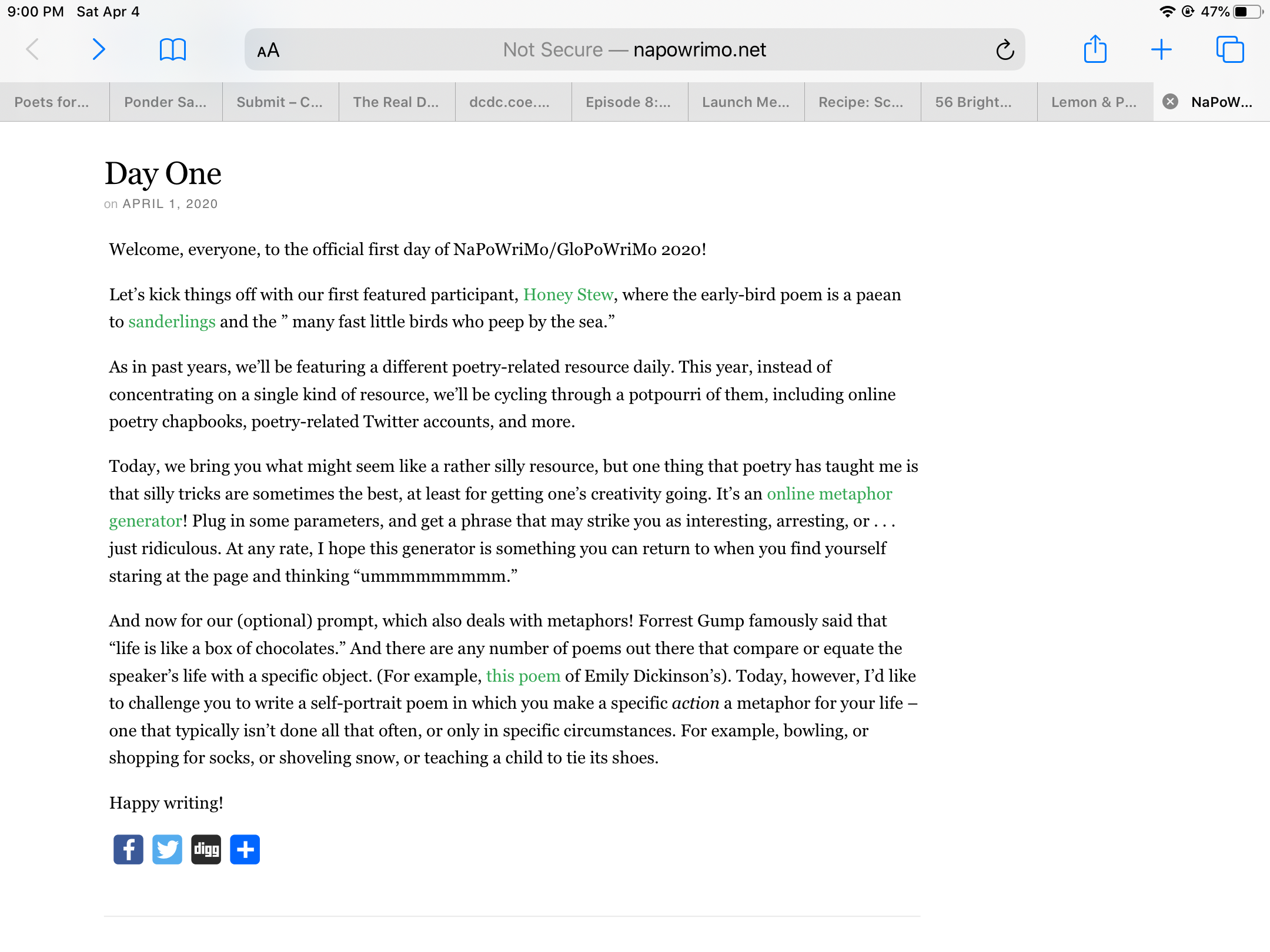We all have friends, family members, and coworkers who drive us batshit crazy at times, especially as the family members are now temporary coworkers. HR cannot deal with a teenager, and performance evaluations mean nothing to toddlers. We cannot live without them, but we are really tired of living with them. Or perhaps it’s that friend who is so thirsty, Niagara Falls would dry up after a conversation. What to do?
You need to vent, but the one bathroom is the only room with a lock and the most happening place in the house, or perhaps the people you vent to are the ones you want to vent about. Awkward! You could write an utterly satisfying rant poem, but then you cannot ever share it. So tell the truth, but tell it slant as one famous self-quarantined poet once said.
For this prompt, make one list of five garden pests and a second list of four annoying things coworkers do (e.g. never chipping in for creamer, talking loudly on the phone, leaning over your shoulder to check on your productivity, etc.) but include the thing that is most driving you nuts. Mix and match, add predators, bug zappers, and lawn mowers. Get creative. Or vicious. Have fun!
Good luck!
Here is my coworker climbing the walls, so apparently I am the annoying one. If I disappear, look for my body in the hall closet hatch…















































